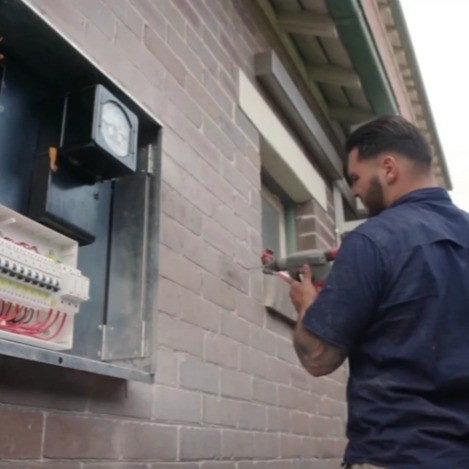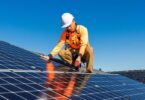When we use less, it costs less. In our current economic climate, with the cost of everything steadily rising, savvy homeowners need to be constantly on the lookout for simple and effective ways to reduce household expenses.
Unfortunately, we can’t do much about prices; they are what they are. So, we have to look for ways to reduce consumption instead. Energy use is one area where we can find ways to do this! With that in mind, here are some practical, long-term energy saving tips for your home?
We have some great general energy-saving tips for your home; read on if you are keen to get serious about reducing your energy consumption. This is not to say those tweaks aren’t important – they are.
But making a truly substantial difference to your energy consumption long-term requires implementing permanent energy-saving solutions, like replacing old inefficient equipment with new, more energy-efficient models. When used in conjunction with general energy saving ‘tweaks’, it will substantially transform your energy consumption! And reduce your electric bill.
NSW energy rebate: Guide to claiming your electricity rebate
The NSW State Government has a series of energy efficiency rebates available for eligible households and businesses through the NSW Energy Rebate (NSW EES). These rebates constitute a valuable opportunity for homeowners to reduce electricity costs across a range of high-energy consuming appliances around the home – air conditioners, hot water heaters, lighting, pool pumps, and so on.
Efficient Energy Group has a series of comprehensive guides for homeowners interested in claiming the electricity rebate in NSW and can walk you through the entire process – from assessing eligibility through to installation of your chosen appliances. Ultimately, understanding how the rebate and application process works is central to maximising the energy savings available through the NSW Energy Rebate Scheme.
How to reduce your electricity bill
Beyond the rebate programme, implementing everyday strategies that will reduce your electric bill is essential. These range from simple tweaks around the home, such as:
- swapping old lighting to LED lights;
- fixing gaps around windows and doors;
- keeping curtains and blinds closed on sunny sides of the house during the day in summer;
- making use of natural lighting;
- using a clothesline not a clothes dryer;
- washing clothes in cold water;
- optimising use of off-peak tariffs;
There are also structural strategies you can employ, such as insulating walls, installing ceiling fans, getting double-glazed windows, and even planting an energy-wise garden.
When these are done in combination with energy-efficient equipment upgrades available through the NSW Energy Rebate, your energy savings will be significant. Indeed, there’s never been a better time to implement a whole range of strategies to reduce your electricity bill and your carbon footprint.
Installing efficient air conditioning systems
Air conditioners are huge energy consumers, especially old air conditioners. In fact, they can be responsible for almost 50 per cent of the total energy consumption in your home! Installing efficient air conditioning systems will considerably reduce this – sometimes by up to 50 per cent, depending on the type of air conditioner you install, and how you use it.
Today’s modern air conditioners have a range of features designed to both reduce energy consumption and improve the quality of the air they produce. Specifically, they:
- prioritise cooling efficiency AND energy conservation.
- incorporate technology such as advanced variable speed compressors and motors designed to slow down or speed up as required to maintain consistent air temperature. This uses far less power than the ‘on/off’ technology in old air conditioners.
- integrate cost-saving technologies like zoning, intelligent sensors, and user-programmable thermostats for temperature adjustment.
- incorporate advanced filtration systems to improve indoor air quality and optimise airflow.
Replacing your hot water system for better efficiency
After air conditioning, old hot water systems (both electric and gas) and electric boosters on solar hot water systems are the next highest energy users in most households, accounting for up to 20 per cent of your energy bill. This is where swapping out your old water heater for an energy-efficient heat pump can pay big dividends at meter reading time.
A heat pump uses up to 50 per cent less energy than older types of water heaters because it uses naturally occurring thermal energy from the surrounding air, or ground instead of expensive electricity or gas to heat water. In fact, a heat pump only uses electricity to run some of its components, notably the compressor. If you also have a solar power system you will cut your water heating costs even further because what power the heater does use will come from that, not the grid.
Introduction to installing solar power systems
Speaking of solar power systems, nothing says you’re serious about energy savings in your home like an impressive array of solar panels on your roof does!
Installing a large capacity modern solar system with storage batteries can potentially switch your electric bill to an electric invoice – to your energy retailer! Especially when combined with energy-efficient upgrades elsewhere around your home.
Australia leads the world in solar energy generation per capita
With around one-third of Australian residences now sporting a solar system of some type, we produce more solar energy per person than any other country in the world!
This demonstrates very clearly the high level of uptake and utilisation of solar power technologies in Australia and is indicative of our commitment to, and investment in, solar energy infrastructure. A commitment that is confirmed and assisted by energy incentives like the NSW Energy Rebate and Home Energy Efficiency Retrofits (HEER)!
If you are interested in how you can use the NSW Energy Rebate to help offset the cost of a solar power system, or any of the other energy efficiency upgrades mentioned above, head to their website or contact the team at Efficient Energy Group. They will assess your eligibility for the rebate, and walk you through the entire process, including selecting the right energy-efficient products to suit your requirements.
The NSW Energy rebate: Making energy savings easy
There are many ways you can save energy around your home, and they all will make a difference to your electric bill. However, imagine the impact when you combine them with energy-efficient upgrades to some of the most energy expensive appliances and fixtures in your home, like your old air conditioner, ancient lights, or electric hot water heater!
When you’re ready to get started, Efficient Energy Group is ready to help you get those energy savings underway!
“The opinions expressed by BizWitty Contributors are their own, not those of BizCover and should not be relied upon in place of appropriate professional advice. Please read our full disclaimer."







